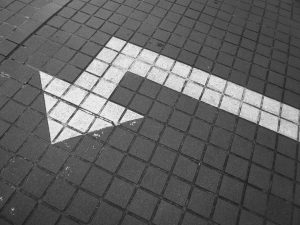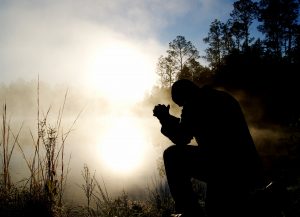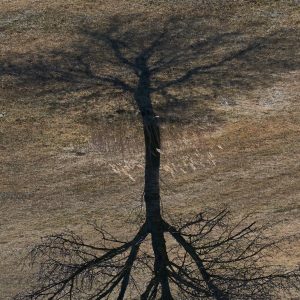The resurrection event that shifted the world and eternity in one mighty move—on both sides of the Judaic-Messianic bridge: Jesus of Nazereth.
© desireofmysoul.faith & SoulBreaths.com. All rights reserved.
READING TIME: 8 MINUTES
HAVE YOU READ THE FIRST POSTS IN THIS SERIES?
This resurrection event—factual, real, historic—was heaven thunderbolting our earthly dimension. Victorious over death’s grip . . . physically and spiritually . . . for your soul and everyone who ever lived.
Unlike the other resurrected people mentioned in the Bible, Jesus didn’t have to die a second time. He conquered death.
JESUS, THE MESSIAH: THE LEAD-UP
It was prophesied: The Messiah would suffer. You may even know the Isaiah 53 Messianic prophecy—given 700 years before it was fulfilled. The same prophecy rabbinic sages knew . . .
The arm of the Lord (his salvation power, Messiah) would be wounded (pierced) for our transgressions, crushed for our iniquities . . . upon him was the punishment that brought us peace . . . by his wounds, his scourging, we are healed.
It’s the glorious and unimaginable plan of God. His Messiah, holy and blameless, yet oppressed and afflicted.
And us—Jew and Gentile—fractured like those shattered tablets of Moses, yet made whole in our Messiah, the one sent by God.
That fractured state (our sin) was the reason Jesus’s crucifixion, resurrection, and ascension were needed.
Because no one does what is right . . . our best works are viewed as “filthy menstrual rags” before our Holy God: Genesis 8:21b, I Kings 8:46, Ecclesiastes 7:20, Isaiah 59:1-2, Psalm 14:23, Psalm 53: 2-4 (3-5), and many others.
So ultimately, because of our sin God’s love put Jesus the Messiah, the Son of God, on the cross.
Not the Jewish authorities.
Not Roman rule.
Not the angry mob.
Jesus, the WORD that came up out of the Father . . . Jesus, the only begotten Son of God (“begotten” meaning brought forth from the Father, per the Hebrew, Psalm 2:7) . . . Jesus, who is one with the Father yet distinct in person, who was brought forth by the Father from within God Himself for the sake of the world, for the sake of God’s redemptive plan . . .
Jesus, the Messiah gift from the Father to the world, makes it clear:
For this reason the Father loves me,
because I lay down my life
that I may take it up again.
No one takes it from me,
but I lay it down of my own accord.
I have authority to lay it down,
and I have authority to take it up again.
This charge I have received from my Father.
—John 10:17-18 (ESV)
Jesus (Yeshua, his Hebrew name) became the way for us—the only way—to bridge a restoration, an eternal relationship with the eternal God.
He was (and is) a Tzadik, a righteous person. Fulfiller of the Law and Messianic prophecies. Teacher. Healer. Miracle worker.
He’s God’s Truth that was manifested on Earth . . . the Light of heaven piercing humanity’s darkness.
Born a Jew, Jesus/Yeshua lived as a Jew—and was crucified as King of the Jews.
But he resurrected as King of Kings, Lord of all, to the glory of the Father.
In sync with what Isaiah 35:5-6 said about the Messiah, Jesus made the blind see, the deaf hear, the mute speak . . . and he cleansed the lepers, healed the sick, delivered people from demonic possession—and raised the dead.
Because of that, many Pharisees, even some members of the Sanhedrin, and multitudes of Jewish lay people and others witnessed these fulfillments, recognizing and believing that Jesus was (and is) the Jewish Messiah, the Son of God.
But other Jewish authorities didn’t . . .

COUNTERPOINT
The proverbial pot brewed to a feisty, rolling boil. The top three reasons why the Jewish authorities were nearing the brink . . .
Reason #1: Truth Spoken. Many of the Jewish authorities of the day flowed in pride and religiosity and burdened the people with added laws and demands. Jesus, the voice of God, called them out on it—many times.
At one point he referenced Isaiah, saying he’d prophesied right about them:
And the Lord said:
“Because this people draw near with their mouth
and honor me with their lips,
while their hearts are far from me,
and their fear [reverence] of me
is a commandment taught by men
[doctrines of human origin].”
—Isaiah 29:13 (ESV), Matthew 15:8-9
Jesus also called them “blind leaders of the blind” (Matthew 15:14) and
said they appeared righteous on the outside but were full of hypocrisy and wickedness on the inside. Like whitewashed tombs—appearing clean but dead within.
“The scribes and the Pharisees sit in the seat of Moses;
therefore all that they tell you, do and observe,
but do not do according to their deeds;
for they say things and do not do them.
They tie up heavy burdens and lay them on men’s shoulders,
but they themselves aren’t willing to lift a finger to move them.
But they do all their deeds to be noticed by men;
for they broaden their tefillin (phylacteries)
and lengthen their tzitziyot (garment tassels).
They love the place of honor at banquets
and the chief seats in the synagogues,
they love to be greeted with respect in the marketplaces
and to be called rabbi by others.”
—Matthew 23:2-7
Reason #2: Rome. The throngs of people in the street following Jesus . . . the hot debates erupting among the crowds about whether or not Jesus was the Messiah . . . the Pharisees butting up against Jesus and his followers . . . were all catching the unwanted attention of Rome who demanded obedience from their conquered population—not commotion or unrest.
The last thing the Sanhedrin wanted was their distinguished perch rocked.
Reason #3: Miracles. The movement of God couldn’t be stopped. Jesus is, was, and always will be one with the Father. Everywhere Jesus walked, he said what the Lord told him to say, did what he saw the Father doing, and prayed what the Father prayed.
Healings and miracles resulted. So much so that one of his close disciples, John, wrote this at the end of his gospel account:
“Now there are also many other things that Jesus did. Were every one of them to be written, I suppose that the world itself could not contain the books that would be written.”— Gospel of John 21:25
And that brought things to a mega tipping point when Jesus raised Lazarus from the dead—because Lazarus had been in the tomb four days.
In fact, the chief priests wanted to kill Lazarus just as much as they wanted to kill Jesus since even more Jews were now believing Jesus was the Messiah.
So they forged a plan. One that dovetailed into Messianic prophecy.
Therefore the chief priests and the Pharisees
convened a council and were saying,
“What are we doing? For this man is performing many signs.
If we let Him go on like this, all men will believe in Him,
and the Romans will come and take away both our place
and our nation.”
But one of them, Caiaphas, who was high priest that year,
said to them, “You know nothing at all,
nor do you take into account that
it is expedient for you that one man die for the people,
and that the whole nation not perish.”
Now he did not say this on his own initiative,
but being high priest that year,
he prophesied that Jesus was going to die for the nation,
and not for the nation only,
but in order that He might also gather together into one
the children of God who are scattered abroad.
So from that day on they planned together to kill Him.
—John 11:47-53

THE CRUCIFIXION
It was a holy journey of love . . . paved with treachery. Jesus was taken in the night to stand before the High Priest Caiphus and the Sanhedrin.
He was struck by a soldier, later blindfolded and mocked, spat on. By morning, he was marched to Pontius Pilate, handed over to Herod, and afterward brought back to Pilate, where he was flogged.
The Roman flagrum:
a short whip with several heavy leather thongs—
with two small balls of lead attached near each end.
The “heavy whip is brought down with full force” repeatedly
across the shoulders, back, and legs.
The whip cuts through the skin,
then deep into subcutaneous tissues,
eventually spurting arterial bleeding.
The skin of the back is hanging in long ribbons . . .
an unrecognizable mass of bleeding tissue.
[Roman whipping information from the Dr. C. Truman Davis article
“A Physician’s View of the Crucifixion of Jesus Christ”]
Per John 19:2-3 and Matthew 27:28-32: The governor’s soldiers stripped Jesus of his clothes, put a purple robe on him, twisted thorn branches into a crown and placed it on his head—causing tremendous bleeding—and put a stick in his right hand, kneeling before him mockingly saying, “Hail, King of the Jews!”
They spit on him and used the stick to beat him about his head. Then they removed the robe—an excruciating moment as it tore against his deep wounds—and redressed him in his clothes before leading him through Jerusalem in his extremely fragile state.
Their destination: a place called Gulgotha [the Skull], outside the city.
Roman soldiers drove iron nails through Jesus’ wrists and feet. Pilate ordered a sign be posted on the cross in three languages, Hebrew, Latin, Greek: Jesus of Nazareth, the King of the Jews.
I am poured out like water, and all My bones are out of joint;
My heart is like wax; it has melted within Me.
My strength is dried up like a potsherd,
and My tongue clings to My jaws;
You have brought Me to the dust of death.
For dogs have surrounded Me;
the assembly of the wicked has enclosed Me.
They pierced My hands and My feet;
I can count all My bones.
They look and stare at Me.
—Psalm 22:14-17
prophetically written by King David about the Messiah’s death
It was Friday, a day of preparation for the Shabbat [Sabbath]—a special one because it was Passover week. The Jewish leaders didn’t want the bodies remaining on the crucifixion stake past sundown—Jesus’s body and those of the two criminals crucified on other side of him.
So they asked Pilate to hasten the deaths of the three men by breaking their legs. The soldiers first broke the legs of the men on either side of Jesus, but when they went to Jesus, they saw that he was already dead.
One soldier took his sword and pierced Jesus’ side. Immediately, blood and water poured out. He died without one of his bones broken, fulfilling Psalm 34.
Joseph of Arimathea—a Jew, a man of means, a respected member of the council, and a follower of Jesus—asked Pilate for Jesus’s body. Pilate granted him permission.
Joseph and another Jew, Nicodemus—a Pharisee, member of the Sanhedrin, and follower of Jesus (John 3)—took the Messiah’s body, wrapped it in linen sheets with the myrrh-and-aloes spices, in accordance with Judean burial practice, and placed the body in a new tomb (previously purchased by Joseph of Arimathea for himself), located in a nearby garden.
Afterward, a huge stone locked the entrance—and Pilate placed soldiers to guard the tomb, worried about the stories of Jesus’s promised resurrection.

GLORIOUS RESURRECTION
Early on the first day of the week—Sunday—when it was still dark, Mary from Magdala along with Mary (the mother of James), and Salome went to the tomb in hopes of finding someone to roll the stone away, so they could anoint the body with spices. [Mark 16]
But the stone was already rolled away.
Mary (from Magdala who Jesus had cast out seven demons) ran to tell the disciples Peter and John, who immediately went to the tomb and saw that it was empty. Not understanding, they returned home, perplexed. Not Mary. She stood outside the tomb crying, then bent down and peered into the tomb.
Two angels sat where the body of Jesus had been—one at the head and one at the feet.
Familiar, right? Like the two angels facing one another on top of the Ark of the Covenant.
“Why are you crying?” the angels asked Mary.
“They took my Lord, and I don’t know where they’ve put him,” she cried.
Just then, she turned and saw Jesus standing there
In the evening of the same day—the first day of the week—the disciples were gathered behind a locked door, fearful of the Judeans.
Jesus appeared, stood in the middle, and said, “Peace be upon you!”
He showed them his hands and pierced side.
Throughout the next forty days, he appeared to many people, per convincing proofs, and spoke of things regarding the Kingdom of God.
He appeared to . . .
(1) several women immediately afterward (Miriam Magdala, Miriam, Salome, Joanna)
(2) Simon Peter
(3) his disciples at various times (e.g. in an upper room and at the Sea of Galilee and on a mountain in the Galil)
(4) two disciples on the Emmaus Road
(5) James, his half brother
(6) over 500 people at the same time (1 Corinthians 15:6)
While he was blessing the disciples, Jesus ascended into heaven, returning back to the Father. His followers evidenced him being taken up into a cloud (Acts 1).
His ascension was witnessed by his Jewish disciples: Simon Peter, Andrew, John, James, Philip, Bartholomew (Nathanael, Bar-Talmai), Thomas, Matthew, James (son of Alphaeus), Simon the Zealot, and Thaddeus (also known as Judas—not the betrayer Judas Iscariot, but the son of James).
Right afterward, two men clad in white robes said to his followers:
“Men of Galilee, why do you stand gazing up into heaven?
This same Jesus, who was taken up from you into heaven,
will so come back just as you saw Him go into heaven.”
And there’s so much more to that story . . .
But for now, let’s talk about you.

BACK TO YOU
The Messianic prophecies in the Bible (108 minimal, some classify 300 or more) point in just one direction—Jesus.
Power stats. The chance of fulfilling just 16 [of the minimal 108 Messianic prophecies] is 1 in 1045. Accidentally fulfilling the prophecies is “beyond the realm of possibility,” per Lamb and Lion Ministries’ website.
Multitudes of people in the first century CE, from Jewish leaders and lay people to Gentiles, recognized Jesus as the Jewish Messiah sent from God.
But others considered the miracles and said he must be John the Immerser/Baptizer (crazy idea because John was Jesus’s contemporary and his same-age cousin). John was beheaded earlier in Jesus’s ministry per Herod’s orders.
Others thought Jesus might be one of the ancient prophets, Elijah or Jeremiah.
But now . . .
Jesus asks you the same soul-transforming question
that he asked his disciples in Matthew 16:13-17:
WHO DO YOU SAY I AM?
* * *
READ THE NEXT POST IN THE SERIES
HAVE YOU READ THESE EARLIER POSTS IN THIS SERIES?
RELATED RESOURCE
Here’s more in English/Hebrew about Isaiah 53 at One for Israel Ministry
PHOTO CREDITS:
Resurrection/Tomb photo by jchizhe, purchased on iStock.com (Stock photo ID:1243063771)
Blue/Red Chairs photo by Chris Barbalis on Unsplash.com
Storm-light clouds photo by Tom Barrett on Unsplash.com
Good News photo by Jon Tyson on Unsplash.com
Arrow photo by Franck V. on Unsplash.com
Resurrection series initially created between March 30, 2016 – July 3, 2016, then later divided into various posts for easier reading



















